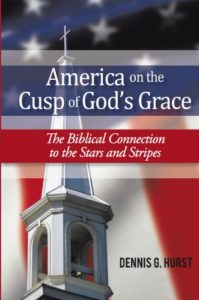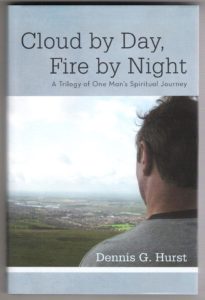Tags
Christianity, Conservatism, Constitutional Republic, Everlasting, Experience, Family, Fellowship of the Minds, Freedom, Genealogy, George Orwell, God, Jesus Christ, Lessons, Liberty, Life, Posterity, Teaching, United States, Wisdom
Share it
All Hallows Eve & All Saints Day. There’s a wonderful website that I have been following for a number of years now, known as “Fellowship of the Minds” (FOTM) with a subhead of “In a time of universal deceit, telling the truth is a revolutionary act”, and if it sounds familiar, then you are a true follower of George Orwell and “1984” !
This past Friday of course, was Halloween, an original Godly Holy Day which, like Christmas, Easter, and many other Judeo/Christian festival days (“feast days” as the Bible refers to them) was hijacked by Satan and his hordes a millennia or two ago and was morphed into something rather more sinister than its original intent, which, on the following day, was the celebrating of All Saints Day on November 1st. Generally celebrated by the Catholic Church, its Eastern Orthodox counterpart and the Anglican Church of England, it had such important interest in my days as a schoolboy growing up in England, that “All Saints Day” was in fact a holiday so that families could pay homage to the Saints in Church services all across the country, and even in the Commonwealth Nations. Suffice to say that the custom was allowed to peter out over the years, and be banished to the ash heap of history.
This opener of mine is all by way of a segue` into the history of All Hallows Eve & All Saints Day which appeared in FOTM yesterday, and I post it in its entirety because it deserves it. Not that I advocate one way or another that access to the Saints is, or isn’t, on the radar screen of possibility, but simply as an example of the ongoing pulling apart and destruction of Judeo/Christian historical founding principles and spiritual habitation. One can only wonder just how long it would take for all aspects of Judeo/Christian history, including the Holy Bible, to be banished by the forces of darkness, to the same afore-mentioned ash heap of history, never to be remembered ever again. Remember, especially in light of this coming Tuesday, that elections have consequences, and a “no vote, or a no show” is still a vote for something or other. Now on to the history of All Hallows Eve & All Saints Day….
All Saints Day
This past Friday, October 31, was All Hallows’ Eve or “Halloween”, that is, the evening before the holy ones. As explained in “Reclaim Halloween as the holy All Hallows’ Eve!,” the word “hallow” is “to make holy or sacred, to sanctify or consecrate, to venerate,” while the word “e’en” means “evening.” The word “saint” means holy. Halloween therefore, means Holy Evening or the Evening of the Hallowed or Holy Ones, i.e., the Evening of the Saints.
In other words, Halloween is the evening before All Saints Day, which is today!
Then I saw another angel come up from the East, holding the seal of the living God. He cried out in a loud voice to the four angels who were given power to damage the land and the sea, “Do not damage the land or the sea or the trees until we put the seal on the foreheads of the servants of our God.” I heard the number of those who had been marked with the seal, one hundred and forty-four thousand marked from every tribe of the Israelites.” Rev. 7:2-4
After this I had a vision of a great multitude, which no one could count, from every nation, race, people, and tongue. They stood before the throne and before the Lamb, wearing white robes and holding palm branches in their hands. They cried out in a loud voice: “Salvation comes from our God, who is seated on the throne, and from the Lamb.” All the angels stood around the throne and around the elders and the four living creatures. They prostrated themselves before the throne, worshiped God, and exclaimed:
“Amen. Blessing and glory, wisdom and thanksgiving, honor, power and might be to our God forever and ever. Amen.”
Then one of the elders spoke up and said to me, “Who are these wearing white robes, and where did they come from?” I said to him, “My Lord, you are the one who knows.” He said to me, “These are the ones who have survived the time of great distress; they have washed their robes and made them white in the blood of the Lamb.” Rev. 7:9-14.
“For this reason they stand before God’s throne and worship him day and night in his temple. The one who sits on the throne will shelter them. They will not hunger or thirst anymore, nor will the sun or any heat strike them. For the Lamb who is in the center of the throne will shepherd them and lead them to springs of life-giving water, and God will wipe away every tear from their eyes.” Rev. 7:15-17.
Through the “communion of saints,” a doctrine proclaimed in the Apostle’s Creed, the blessed in heaven assist those of us on earth; we pray with the saints so that they may intercede on our behalf before Our Lord. Remember, these incredible, courageous and wonderful individuals see God face to face! How cool is that?
Indeed, they are the ultimate role models, heroes and heroines-people who chose to do extraordinary things and behaved always with serving Our Lord as their first priority in their lives, no matter what the cost. They were no different as human beings than we are, with faults, talents, proclivities towards temptation and bearing all qualities incident to human beings. What made them different were their choices, to serve God first above anything and everything. To put it more eloquently were the words of St. Thomas More on the day he was beheaded, wherein he stated, “I am the King’s good servant, but God’s first.”
In the communion of saints, “a perennial link of charity exists between the faithful who have already reached their heavenly home and those of us who are still pilgrims on earth.” (CCC 1475)
St. Thomas More said this about the saints. “We venerate the saints as God’s servants, as we would on earth welcome the servants of a great man we esteemed. If the goodness we bestow upon our poor brethren is considered by Christ as bestowed upon Himself, as He tells us (Mt 25:40), and if those, as He says, who welcome His apostles and disciples welcome Him (Mt. 10:40), assuredly those who honor the saints are likewise honoring Christ. Our Lord Himself showed that He would have His saints partake in His glory when He promised the apostles that they would be seated at His side on the final Day of Judgment (Mt. 19:28). Moreover, He promised that Martha’s sister Mary (whom More identified as Mary Magdalen) would be honored throughout the world for her deed of anointing Him with ointment (Mt. 26:13).”
As to honoring the saints, and our desire to request their advocacy and intercession on our behalf, as to whether or not the saints can either hear us or help us, St. Thomas More provided, “Yet how can we doubt whether they hear us? Their souls are not dead, and therefore as living souls the love and charity toward their fellowman that characterized them to this world cannot have diminished in the next. The closer one draws to heaven, the greater is his solicitude toward his brethren here on earth, as was the case with the martyr Saint Stephen, who after seeing heaven opened, prayed for his enemies who were stoning him (Acts 7:55-60). In view of this, is it conceivable that Saint Stephen would not pray for those who honor him on earth, now that he is in heaven?” And the question is further posed, how can the saints in heaven help us? More reasoned that since “the saints were certainly able to assist others while on earth where their human nature was as weak as ours, surely they can do so in heaven.”
More further reasoned that even while Our Lord lived on this earth, He permitted people to come to His apostles rather than directly to Himself for help and allowed the Twelve to work miracles in His stead. Indeed, on some occasions the apostles assumed the role of intercessors with Christ, presenting the petitions of others to their Master. “If this was the case when the apostles were with Christ on earth, it must surely be so now that they dwell with Him in heaven. God is pleased to have us honor and call upon His saints, His especial beloved friends, for it becometh us and well behoveth us to make friends of such as he hath in favour.”
Have not you ever asked someone, “Please pray for my mother, she is very ill,” or “Please pray for me; I am about to make a very important decision that will affect my life.” Indeed and in fact, we have set forth these petitions to others on FOTM. Ergo, we pray with the Saints, inhabitants of the Church Triumphant, for their intercession, for their guidance that they receive from Our Lord Himself. If we ask those we know on earth for their advocacy and prayers, all the more reason to ask the Church Triumphant to enter our lives, to give us direction and to ask through them the Grace from God necessary to live our lives according to the Will of God, to the fullest extent, using all of our talents and gifts given to us by God. The Saints are with us; we are foolish not to have camaraderie with them and to enjoy intimate and meaningful relationships.
We end this post by honoring the particular Saints in our respective lives who have inspired and helped us:
- From Joan: St. Joan of Arc, St. Michael the Archangel, St. Patrick, St. Veronica, St. Thomas More, St. Therese-the Little Flower, St. Francis of Assisi, St. Monica, St. Augustine, St. Thomas Aquinas, St. Bonaventure, St. Anthony, St. Benedict, St. Faustina, St. John Paul II and St. Katera Tekakwitha.
- From Eowyn: St. Michael the Archangel, St. Paul, the Virgin Mary, St. Thérèse the Little Flower, St. Thomas Aquinas, and my patient and wonderful guardian angel.
We love you, we admire you, and we thank you!
May Our Lord Always Be First Served!
For the Saint posts we’ve published, go to FOTM’s “Saints and Angels” page!
All Hallows Eve & All Saints Day.
Sources:
- Catechism of the Catholic Church.
- James Monti, The King’s Good Servant but God’s First, The Life and Writings of Saint Thomas More (San Francisco: Ignatius Press, 1997).
- Sister Mary Raphael is Gone, But Not Forgotten! Daily Catholic 2000, January 18, 2000, volume 11, no. 12.





 Link To DennisGHurst.com
Link To DennisGHurst.com


